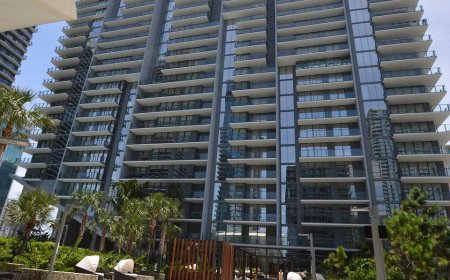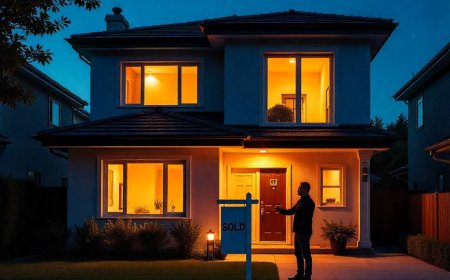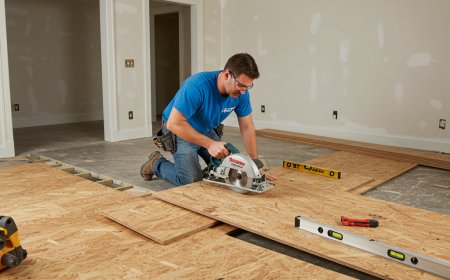Why Will Homeownership Be Impossible in 10 Years?

The dream of owning a home has been a cornerstone of financial stability and personal achievement for generations. However, as we look toward the future, a troubling question arises:Will homeownership become impossible in the next decade?
Rising home prices, stagnant wages, increasing interest rates, and economic uncertainties are converging to create a perfect storm that could lock millions out of the housing market. In this blog post, well explore the key factors that may make homeownership unattainable for most people within the next 10 yearsand what potential solutions exist.
1. Skyrocketing Home Prices
Over the past few decades, home prices have surged at a rate far exceeding income growth. According to recent data:
-
The median home price in the U.S. has increased by over121%since 2000.
-
Wages, however, have only grown by about30%in the same period.
This widening gap means that even middle-class families are struggling to afford down payments. If this trend continues,the average home could become completely out of reach for most buyers within a decade.
Why Are Prices Rising So Fast?
-
Limited Housing Supply:Construction hasnt kept up with demand, especially in urban areas.
-
Investor Purchases:Corporations and wealthy investors are buying up homes, turning them into rentals and reducing available inventory.
-
Zoning Restrictions:Strict zoning laws prevent the development of affordable housing in many cities.
2. Rising Mortgage Interest Rates
The Federal Reserve has been increasing interest rates to combat inflation, leading to higher mortgage rates.
-
In 2021, the average 30-year fixed mortgage rate was around3%.
-
By 2023, rates had climbed toover 7%.
Higher rates mean higher monthly payments, pricing many buyers out of the market. If this trend persists, securing an affordable mortgage could become nearly impossible for average earners.
3. Stagnant Wages vs. Inflation
While home prices and living costs soar, wages remain stagnant.
-
Inflationhas eroded purchasing power, making it harder to save for a down payment.
-
Essential expenses(healthcare, education, groceries) are rising faster than incomes.
Without significant wage growth,saving for a home will only get harder, pushing ownership further out of reach.
4. Increasing Student Loan Debt
Millennials and Gen Z are burdened with unprecedented student loan debt.
-
The average student loan debt isover $37,000per borrower.
-
High monthly payments make it difficult to save for a home.
Until student debt is addressed, many young adultswont qualify for mortgages, delaying or eliminating their chances of homeownership.
5. Corporate Landlords & Housing Shortages
Wall Street and private equity firms are buying homes at an alarming rate.
-
Institutional investors own over 15% of single-family rentalsin some markets.
-
They often outbid individual buyers, driving prices up.
If this trend continues,most homes could be owned by corporations, turning the U.S. into a nation of renters rather than homeowners.
6. Climate Change & Insurance Costs
Natural disasters (wildfires, hurricanes, floods) are increasing due to climate change, leading to:
-
Higher insurance premiums(some areas seeing 50%+ increases).
-
Stricter lending requirementsin high-risk zones.
Many insurers are pulling out of disaster-prone areas, making itharder and more expensiveto secure a mortgage.
7. Government Policies & Tax Incentives
Current tax laws favor wealthy homeowners and investors:
-
Mortgage interest deductionsprimarily benefit high-income buyers.
-
Capital gains exemptionsencourage flipping rather than long-term ownership.
Without reforms, policies will continue tofavor the wealthy, leaving first-time buyers behind.
Is There Any Hope for Future Homeownership?
While the outlook seems bleak, some potential solutions could help:
?Policy Changes:Governments could incentivize affordable housing, limit corporate ownership, and reform zoning laws.
?Alternative Housing Models:Co-ops, tiny homes, and modular housing could provide cheaper options.
?Down Payment Assistance Programs:Expanding first-time buyer grants and low-interest loans.
?Wage Growth & Debt Relief:Higher wages and student loan forgiveness could improve buying power.
However, withoutmajor economic and political shifts, homeownership may indeed become a luxury reserved for the wealthy in 10 years.
Final Thoughts: The Future of Homeownership
The American Dream of owning a home is slipping away for many.Rising prices, high interest rates, stagnant wages, corporate landlords, and economic policiesare all contributing to a future where homeownership may be impossible for the average person.
If current trends continue,renting could become the only optionfor most families, fundamentally changing the financial landscape for future generations.
What do you think? Will homeownership still be attainable in 10 years? Share your thoughts in the comments!
































